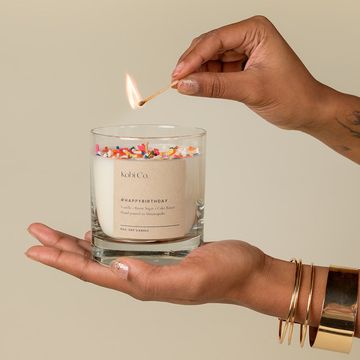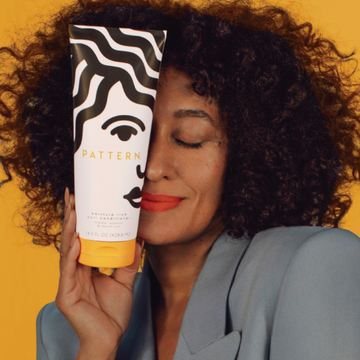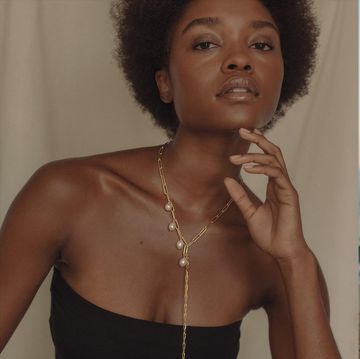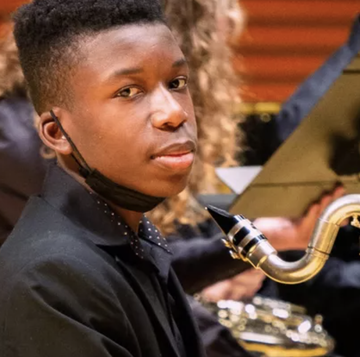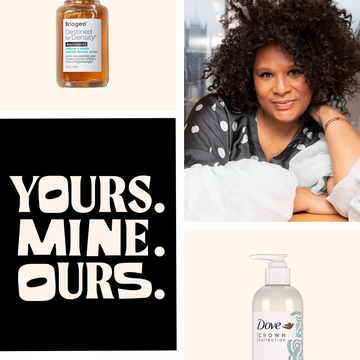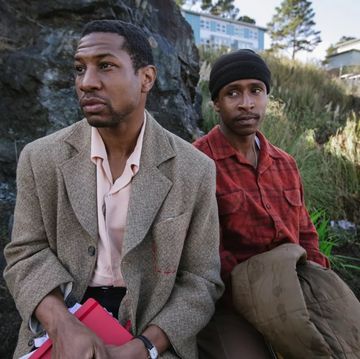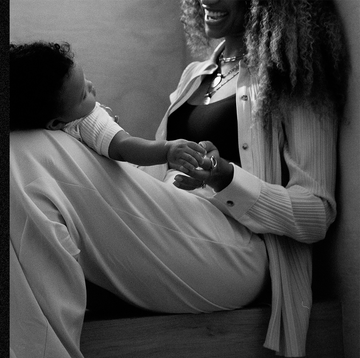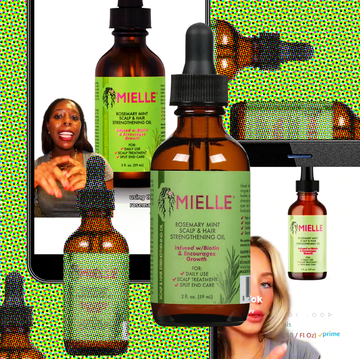In June, J’Nay Reckard, a licensed mental health clinician practicing in New York and Florida, realized that she had to make a change. Her schedule, as it stood, was untenable. And while she wanted to provide support for her patients, she couldn’t do so effectively if she wasn’t also taking time for her own self-care.
She first noticed an uptick in early April. “My caseload increased significantly just with people being traumatized by this very real, very scary virus that we’re all battling,” she tells Cosmopolitan, noting that frontline workers were particularly stressed. Two months later, when the killings of George Floyd, Breonna Taylor, Ahmaud Arbery, and other Black people sparked nationwide protests against police brutality and systemic anti-Blackness, she noticed another shift. “The influx I was already getting kind of doubled, particularly with Black clients seeking therapy,” explains Reckard. “And our sessions centered a lot more on the very real trauma they were all experiencing.”
Reckard, who is Black, also noticed that she wasn’t sleeping well anymore and that she didn’t have time to enjoy walks with her dog or listen to music. “I literally had to delete the Instagram app off my phone; it was just taking time I didn’t have, and it was stress-inducing,” she said. She also decided to set boundaries with the number of clients she sees in a day, reaching out to her clients, including—full disclosure—me, to explain where she was coming from. A month with a more limited schedule would, she explained, be better for her own mental health. When I got her email, it made perfect sense: Of course the person I turn to when I feel stressed might sometimes feel overwhelmed herself. And so of course she would need to enforce the same self-care tactics that she often reminds me to put in place for myself.
The coronavirus pandemic is one of the rare times in which therapists are navigating the same traumas as their patients. COVID-19 has pushed the American health care system to the breaking point and our economy is in free fall. Tens of millions of people have lost their jobs or are living in fear of being laid off. We’re in—to use a phrase that is relied on so frequently that it is rendered nearly meaningless—“unprecedented times.” Or as JaNaè Taylor, PhD, a licensed psychotherapist who practices in Virginia and Georgia and hosts the podcast Minding My Black Business, put it, “We’re building the bridge as we’re on it.”
Taylor also noticed that her caseload increased in April and then again in June, as clients sought to navigate a pandemic that disproportionately kills Black Americans and process trauma from being subjected to anti-Blackness and racism in the face of protests, police killings, and needless death. As a Black woman therapist whose identity informs her work—and who can often relate to the fear and stress that clients experience regarding racism and microaggressions—the stories her clients share with her can take a toll.
“I can’t even find the words to properly explain how difficult it is to acknowledge someone’s pain and also be in pain simultaneously,” she says. To cope, she checks in with herself regularly to ensure she’s getting enough rest and uses the grounding techniques she shares with her clients. “We’re kind of managing the pain and trauma of [our clients], but now we’re talking about pain and trauma that we’re also experiencing, that we’re not immune from what’s happening in real time,” she adds.
For Candice Nicole Hargons, PhD, an assistant professor at the University of Kentucky and the director of the Center for Healing Racial Trauma, the work extends to facilitating workshops with schools and businesses looking to commit to and deepen their practice of anti-racism. While she’s grateful that more organizations than ever have reached out, she also knows she has her limits as a coach:
“I vacillate between feeling really empowered and honored to be able to do this work, and so exhausted. So many people reach out and say, ‘We need this and we want it Friday.’ And I’m like, let me set a really firm boundary around whom I will respond to and when.…Initially, I thought, Let’s respond to everything because I’m trained in this and this is a time for me to give back and do all that I can do. And then I was like, Yes, and I need to do it in a way that doesn’t wear me out.”
On top of setting boundaries to “preserve some breathing room for myself,” Hargons has been prioritizing those with the greatest needs. “In this time, I’m focusing on people of color and organizations of color,” she notes. “I’m going to say yes to them more often and more quickly because I know that’s what I designed the center to do. And then for other organizations, it’s as I have a moment or capacity—and of course, I have a team, so I’m managing what they can do with their schedules as well.” If she or her team can’t take on a new client, she tries to recommend other resources but wants to be cognizant of their time, too, given that Black people and other people of color are navigating compounding and intersecting stressors borne from racial trauma—in addition to any troubles triggered by the pandemic.
It’s important to Kahina Louis, PsyD, a clinical psychologist and founder of Strengths and Solutions, to set her own threshold for discussing traumatic incidents with people outside of her practice. “I have backed away from certain conversations in my personal life, saying, ‘I can’t really go into this because I know that I have to hold that space for my clients,’” she explains, before elaborating, “I can’t really take that step back in my professional life. If a client is coming to me and telling me they want to talk about X, Y, and Z, I can’t tell them, ‘Oh, no, sorry. That would be too triggering for me, I can’t hear that right now,’ the way I might be able to tell that to friends.”
Which isn’t to say that she isn’t affected by her clients’ stories. “In the sessions, I feel that I’m relating so much to what they’re saying that it’s almost impossible for it not to be triggering for me,” she says. But as she works with people to navigate their issues, she often finds comfort in the advice she’s sharing with them.
“I noticed sometimes that when I’m teaching my clients coping skills or teaching them ways to think about or manage things a little bit differently, there’s a piece of me making sure I’m also taking my own advice,” Dr. Louis explains. “So when I’m providing that space for the clients, there’s a part of me that also feels like I’m doing what I can in this movement. I’m supporting a lot of Black individuals who are really suffering right now, and for me, that feels like coping.”
Crystal Joseph, licensed clinical professional counselor and founder of Psyc Your Mind in Maryland, has also been implementing boundaries with friends and family who might not understand why her job is so stressful, especially now: “Unfortunately, the mass public has this idea that therapists are holier than thou—you know, that we’re completely untouchable—but we’re human, we’re not robots.”
“Not everyone understands it,” Joseph admits, “We’re here doing the hard work, we’re front liners, and we’re helping everyone out as best we can.”
So: Where do experts turn when they need help? For some therapists, it’s other therapists, who can both understand the stressors their peers are dealing with and provide an outsider’s perspective on how to cope.
There is no mandate in the United States that therapists must attend their own therapy sessions, although plenty of training programs recommend doing so and almost all the professionals I spoke to said they find it valuable. Reckard notes that in addition to seeing her own therapist, some of her clients are therapists themselves, creating a full-circle moment. “It’s important for us to have our outlet as well—to get a different perspective, to deal with life outside of being a therapist,” she says. “Doctors need doctors too.”
Taylor recently recommitted to her own therapy sessions to better support herself and her clients alike, and she also finds community support through a monthly digital meetup of Black therapists in her area.
“We use it as a time to support each other, to collaborate, sometimes just to decompress around all the pressures,” she says, adding that the space her peer group provides helps her, in turn, give her best work to clients. “I want to be of service, but I also know—and I knew this before some of these things came to light—that I can’t be my best self if I’m exhausted.” She’ll also be taking some time off in August to recalibrate, which she says, “allows me to come back, catch my second wind, and sit with people and work through it,” whatever their personal “it” may be.
And while social media can be exhausting at times, many therapists are using it as a way to share their practice with others and forge connections with each other. Hargons believes such work is helping to dismantle the stigma surrounding mental health that still exists within the Black community and demystify the work therapists do.
“What I love is seeing all these therapists of color on Instagram and other social media who are really putting themselves out there—creating content; sharing accessible, bite-size versions of the type of work that we do, making themselves visible and accessible; and creating these directories full of people of color therapists,” she says. Her own Instagram is full of resources and updates about her work, presented in a way that the average person can understand.
Social media, she adds, is “a way to make it accessible for everybody, not just people who are getting these academic journals and civics in publishing, because if my grandmother or somebody’s cousin or auntie can’t read it, then what’s the point?” That accessibility, she believes, is not only helping people understand the mental health aspect of anti-racism work but also strengthening their interest in pursuing it further.
Such work will take years to fully process—after all, Black Americans have been subjected to racial trauma for more than 400 years. And given that the coronavirus pandemic shows no signs of slowing down, it’s likely that people will remain stressed and traumatized for years to come, especially as the future remains uncertain. All the more reason—as all the therapists I spoke to pointed out—to seek therapy if it’d be helpful to you.
“At the end of it all, we don’t really know what’s going to happen,” reminds Dr. Louis. “And that is part of the stress in itself. So how can we then manage the stress of that rather than trying to predict what’s going to happen? How can we stay in this current moment? How can we cope a little bit better with what we have going on?” That, she says, is the therapeutic work of not only our current moment but also our lifetimes.




